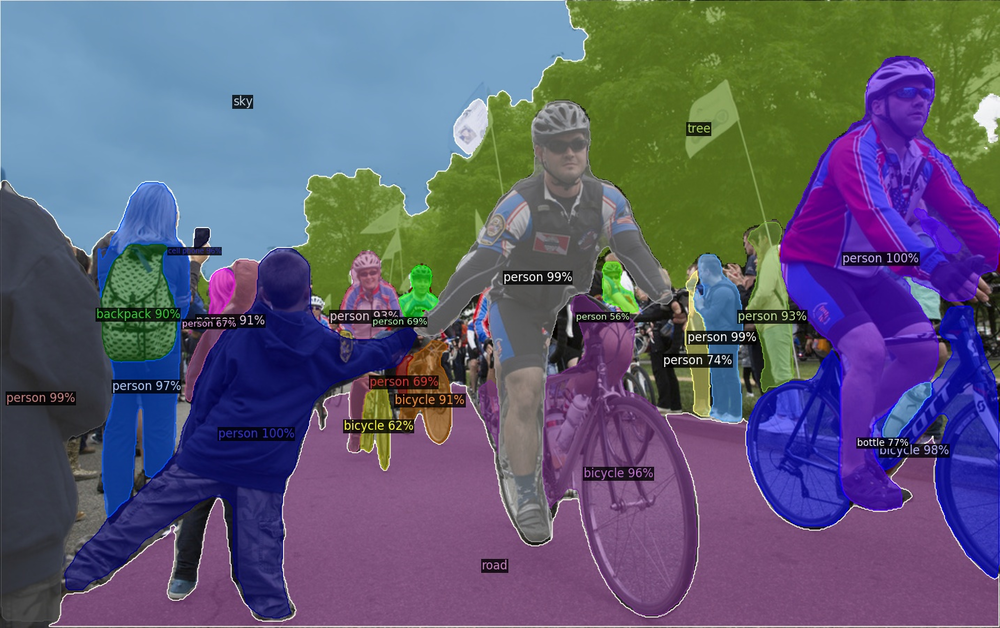Detectron2 is Facebook AI Research's next generation library that provides state-of-the-art detection and segmentation algorithms. It is the successor of Detectron and maskrcnn-benchmark. It supports a number of computer vision research projects and production applications in Facebook.
- Includes new capabilities such as panoptic segmentation, Densepose, Cascade R-CNN, rotated bounding boxes, PointRend, DeepLab, etc.
- Used as a library to support building research projects on top of it.
- Models can be exported to TorchScript format or Caffe2 format for deployment.
- It trains much faster.
See our blog post to see more demos and learn about detectron2.
See installation instructions.
See Getting Started with Detectron2, and the Colab Notebook to learn about basic usage.
Learn more at our documentation. And see projects/ for some projects that are built on top of detectron2.
We provide a large set of baseline results and trained models available for download in the Detectron2 Model Zoo.
Detectron2 is released under the Apache 2.0 license.
If you use Detectron2 in your research or wish to refer to the baseline results published in the Model Zoo, please use the following BibTeX entry.
@misc{wu2019detectron2,
author = {Yuxin Wu and Alexander Kirillov and Francisco Massa and
Wan-Yen Lo and Ross Girshick},
title = {Detectron2},
howpublished = {\url{https://github.com/facebookresearch/detectron2}},
year = {2019}
}